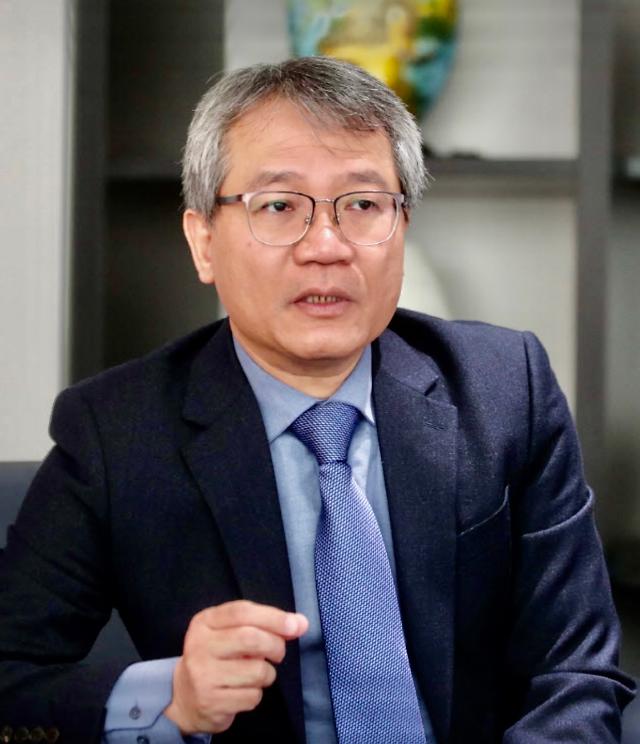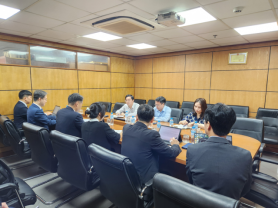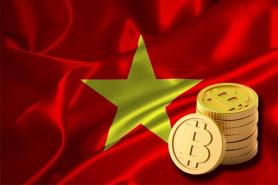
[Vietnamese Ambassador to South Korea Nguyen Vu Tung]
[This interview was conducted by Aju Daily's Chief Editor Park Yoon-bae]
SEOUL -- Vietnamese Ambassador to South Korea Nguyen Vu Tung has suggested Asia's fourth-largest economy open its market wider to Vietnamese goods and promote technology transfer to help address the trade imbalance between the two countries.
“The two sides attach greater importance to tackling the trade deficit issue. This involves greater access to the Korean market for Vietnamese goods,” Ambassador Nguyen said in a recent interview with Aju Business Daily.
He added that in a more important sense, broader technology transfers in such areas as high-tech, digital, 5G, and green/clean technologies, will contribute not only to broadening and deepening bilateral relations but also to enhancing Viet Nam's position in the regional and global value, production, and supply chains and at sharing Korea's developmental experiences with Viet Nam.
He also said that cooperation in the field of developing human resource and small and medium enterprises also contribute to the reduction of trade deficit and promotion of technology transfers, adding that the defense industry has become a promising field of cooperation, demonstrating the strategic nature of the relationship between the two countries in the coming time.
Viet Nam suffered an estimated $34.5 billion trade deficit with South Korea in 2022, according to South Korea's Ministry of Trade, Industry and Energy. The Southeast Asian country topped the list of countries with which South Korea enjoyed a trade surplus.
Amb. Nguyen said that Korea is Viet Nam’s largest foreign direct investment (FDI) partner with about 9,600 projects worth over $81 billion, pointing out that Korean FDI enterprises are present in almost all provinces and cities and major economic sectors in Viet Nam.
He noted that trade between the two countries amounts to more than $80 billion in 2022. “Bilateral economic cooperation positively contributes to Viet Nam's industrialization, growth, developmental model, and international integration, thus represents an important pillar in our Comprehensive Strategic Partnership,” he said.
South Korean companies invested in 370 projects worth $4 billion in the first 11 months of 2022, according to the Vietnamese Ministry of Planning and Investment. South Korea's cumulative FDI in Viet Nam amounted to $30.4 billion as of December 31, 2021, according to the Export-Import Bank of Korea.
South Korea and Viet Nam are seeking to beef up their partnership after marking the 30th anniversary of the establishment of diplomatic relations last December.
Improving business environment in Viet Nam
“The Vietnamese government always prioritizes the improvement of the investment environment. It has continuously made efforts to create a milieu of openness and transparency while complying with international standards and practices as well as the commitments it pledged in multilateral and bilateral FTAs, in line with its developmental level and in the spirit of mutual benefits,” Amb. Nguyen said.
He maintained that Viet Nam continues to attach special attention to three key areas, namely institutional reform aimed at ensuring effective policy implementation, quality improvement of human resources, and modernization of hard and soft infrastructure.
“The government’s efforts at the improvement of the business environment, digital transformation, infrastructure, labor productivity, national credit index, etc… have been acknowledged by many international organizations,” he said.
According to him, Viet Nam's prime minister annually chairs the Viet Nam Business Forum (VBF), a policy dialogue channel between the Vietnamese government and the business community to create a favorable business environment. South Korea and Viet Nam hold a deputy prime minister's meeting, joint economic committee talks, and a joint industrial committee meeting to strengthen investment cooperation.
The envoy pointed out that Viet Nam is faced with negative factors such as the prolonged hostilities in Ukraine, the escalating Sino-U.S. superpower rivalry, worldwide high inflation, rising prices of raw materials, and the global economic slump. He called on South Korea and Viet Nam to work together more closely to tackle those difficulties.
Expanding cooperation for peace and stability
He believes that the comprehensive strategic partnership between the two countries provides greater opportunities for cooperation. He is sure that bilateral political and diplomatic cooperation will contribute to peace and stability in the region and beyond.
Amb. Nguyen expressed hope that both countries will play a key role in promoting regional cooperation, especially as the Association of Southeast Asian Nations (ASEAN) is implementing its vision for the Indo-Pacific, while South Korea is pushing for the "Korea-ASEAN Solidarity Initiative."
He wants to see South Korea and Viet Nam expand their collaboration into defense and maritime security based on mutual understanding and trust to help deal with issues affecting regional peace and stability such as the Korean Peninsula and the South China Sea.
He also stressed the need for the two countries to actively participate in multilateral economic organizations such as the Asia-Pacific Economic Cooperation (APEC) forum, the Regional Comprehensive Economic Partnership (RCEP), the Comprehensive and Progressive Agreement for Trans-Pacific Partnership (CPTPP), and the Indo-Pacific Economic Framework for Prosperity (IPEF).
Amb. Nguyen said that an envisioned Vietnamese Culture Center in Korea to coordinate cultural activities would be desirable. He believed that such a center will contribute to promoting further cultural exchanges, and by so doing, support the tourism, investment, and trade promotion programs as well as be of great assistance to the Vietnamese community in Korea.
He also said that Viet Nam is preparing a set of measures to attract more South Korean tourists after both countries signed a memorandum of understanding (MOU) to strengthen tourism cooperation in 2023 and 2024. He noted that 965,000 South Koreans traveled to Viet Nam in 2022, accounting for 26.4 percent of international visitors totaling 3.66 million. He attributed the sizable increase to the lifting of COVID-19 tests and restrictions as well as the resumed operation of most flight routes between the two countries.
Copyright ⓒ Aju Press All rights reserved.




